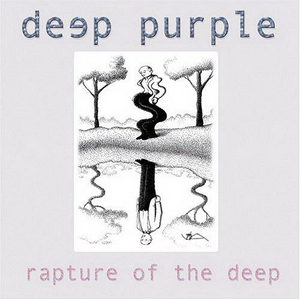Rapture of the Deep
== Rapture of the Deep ==
Rapture of the Deep, also known as nitrogen narcosis, is a condition that affects scuba divers at depth. It is caused by the increased partial pressure of nitrogen when a diver descends below approximately 30 meters (100 feet). The condition can impair a diver's judgment, motor coordination, and sensory perception, which can lead to dangerous situations underwater.
Causes[edit | edit source]
Nitrogen narcosis occurs due to the increased solubility of nitrogen in the body's tissues under high pressure. As a diver descends, the pressure increases, causing more nitrogen to dissolve in the blood and tissues. This excess nitrogen affects the central nervous system, leading to symptoms similar to those of alcohol intoxication.
Symptoms[edit | edit source]
The symptoms of nitrogen narcosis can vary widely among individuals but commonly include:
- Euphoria or a false sense of well-being
- Impaired judgment and decision-making
- Decreased motor coordination
- Visual and auditory disturbances
- Confusion and disorientation
Prevention[edit | edit source]
To prevent nitrogen narcosis, divers can:
- Limit their depth to avoid high-pressure environments
- Use helium-based breathing gases such as trimix or heliox, which reduce the amount of nitrogen in the breathing mix
- Ascend to shallower depths if symptoms begin to appear
Treatment[edit | edit source]
The primary treatment for nitrogen narcosis is to ascend to a shallower depth, where the pressure is reduced, and the symptoms typically resolve quickly. It is important for divers to recognize the signs of nitrogen narcosis and take appropriate action to ensure their safety.
History[edit | edit source]
The phenomenon of nitrogen narcosis was first described by the French scientist Jacques Cousteau in the 1950s. He referred to it as "rapture of the deep" in his book "The Silent World," highlighting the euphoric and potentially dangerous effects of deep diving.
Related Pages[edit | edit source]
- Scuba diving
- Decompression sickness
- Trimix
- Heliox
- Jacques Cousteau
- Partial pressure
- Central nervous system
This scuba diving related article is a stub. You can help WikiMD by expanding it.
Search WikiMD
Ad.Tired of being Overweight? Try W8MD's NYC physician weight loss.
Semaglutide (Ozempic / Wegovy and Tirzepatide (Mounjaro / Zepbound) available. Call 718 946 5500.
Advertise on WikiMD
|
WikiMD's Wellness Encyclopedia |
| Let Food Be Thy Medicine Medicine Thy Food - Hippocrates |
Translate this page: - East Asian
中文,
日本,
한국어,
South Asian
हिन्दी,
தமிழ்,
తెలుగు,
Urdu,
ಕನ್ನಡ,
Southeast Asian
Indonesian,
Vietnamese,
Thai,
မြန်မာဘာသာ,
বাংলা
European
español,
Deutsch,
français,
Greek,
português do Brasil,
polski,
română,
русский,
Nederlands,
norsk,
svenska,
suomi,
Italian
Middle Eastern & African
عربى,
Turkish,
Persian,
Hebrew,
Afrikaans,
isiZulu,
Kiswahili,
Other
Bulgarian,
Hungarian,
Czech,
Swedish,
മലയാളം,
मराठी,
ਪੰਜਾਬੀ,
ગુજરાતી,
Portuguese,
Ukrainian
Medical Disclaimer: WikiMD is not a substitute for professional medical advice. The information on WikiMD is provided as an information resource only, may be incorrect, outdated or misleading, and is not to be used or relied on for any diagnostic or treatment purposes. Please consult your health care provider before making any healthcare decisions or for guidance about a specific medical condition. WikiMD expressly disclaims responsibility, and shall have no liability, for any damages, loss, injury, or liability whatsoever suffered as a result of your reliance on the information contained in this site. By visiting this site you agree to the foregoing terms and conditions, which may from time to time be changed or supplemented by WikiMD. If you do not agree to the foregoing terms and conditions, you should not enter or use this site. See full disclaimer.
Credits:Most images are courtesy of Wikimedia commons, and templates, categories Wikipedia, licensed under CC BY SA or similar.
Contributors: Prab R. Tumpati, MD

